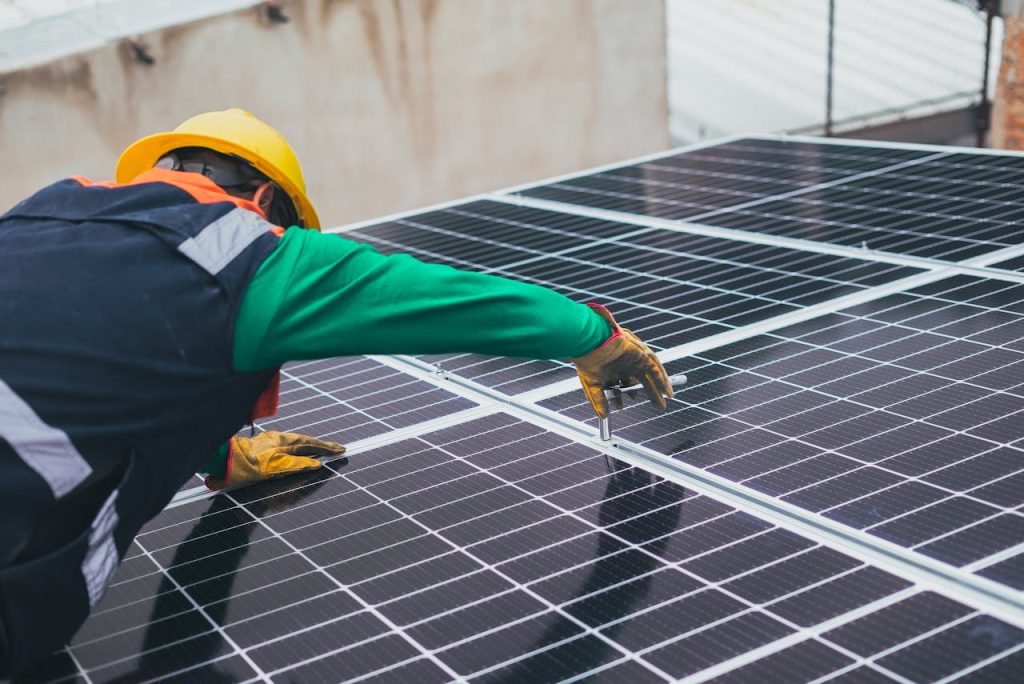
Image Source: pexels.com
Are you still on the fence about installing solar panels? The high upfront costs and lengthy payback periods have made many homeowners hesitate for years. But today’s landscape has shifted dramatically. Solar energy has reached a financial tipping point between technological advancements, falling prices, generous incentives, and rising energy costs. The investment that once seemed questionable now offers compelling returns for many households. As energy independence becomes increasingly valuable, solar panels represent not just an environmental choice but a wise financial decision that could significantly impact your long-term wealth.
1. Installation Costs Have Plummeted
The price of solar panel installation has dropped dramatically over the past decade. According to the Solar Energy Industries Association, residential solar system costs have fallen by more than 60% since 2010. What once cost $40,000 for an average home system now typically ranges between $15,000 and $25,000 before incentives.
This price reduction stems from several factors. Manufacturing efficiencies have improved substantially, while increased competition among installers has driven down labor costs. Additionally, solar panels themselves have become more efficient, meaning you need fewer panels to generate the same amount of electricity.
This translates to a much shorter payback period for homeowners. Many systems now pay for themselves within 7-10 years, compared to the 15-20 years that were common just a decade ago.
2. Federal and State Incentives Create Immediate Savings
The financial situation for solar energy has improved dramatically thanks to government incentives. The federal solar Investment Tax Credit (ITC) currently allows homeowners to deduct 30% of their solar system costs from their federal taxes. On a $20,000 system, that’s a $6,000 reduction in your tax liability.
Beyond federal incentives, many states offer additional rebates, tax credits, and performance-based incentives. Some utility companies even provide cash rebates for solar installations. These combined incentives can cover 40-50% of your total system cost in states like California, New York, and Massachusetts.
Property tax exemptions in many states mean your home’s value can increase without raising your property taxes. These incentives transform the economics of solar from a long-term investment to one with immediate financial benefits.
3. Energy Costs Continue to Rise Nationwide
While solar costs decrease, traditional electricity prices continue their upward climb. According to the U.S. Energy Information Administration, residential electricity rates have increased by an average of 2-3% annually over the past decade, with some regions experiencing much steeper hikes.
By generating your own electricity, you effectively lock in your solar system’s energy costs for the 25+ year lifespan. This creates a hedge against future utility rate increases, which compounds your savings over time. In high-electricity-cost states like California, Hawaii, and Massachusetts, homeowners can save $50,000 to $100,000 over the lifetime of their solar system.
The stability of knowing exactly what your energy costs will be for decades provides financial security that traditional utility customers simply don’t have.
4. Solar Increases Home Value Substantially
Installing solar panels isn’t just about saving on monthly bills—it’s also an investment in your property value. Research by Zillow found that homes with solar panels sell for approximately 4.1% more than comparable homes without solar.
For a $400,000 home, that’s a $16,400 increase in value. Significantly, this premium often exceeds the net cost of the solar system after incentives, creating immediate equity.
Buyers increasingly recognize the value of a home that comes with dramatically reduced or eliminated energy bills. As energy costs continue to rise and environmental concerns grow, this premium will likely increase further.
5. New Financing Options Eliminate Upfront Costs
With today’s financing options, the financial barrier to entry for solar has virtually disappeared. Solar loans now often require zero money down and offer terms of 10-25 years with competitive interest rates. Many homeowners find that their monthly loan payment is less than what they save on their electric bill, creating positive cash flow from day one.
Power Purchase Agreements (PPAs) and solar leases allow homeowners to install solar with no upfront cost while paying only for the power produced, typically at rates lower than utility prices. While these arrangements don’t provide the same level of savings as ownership, they make solar accessible to nearly everyone.
Home equity loans and lines of credit offer another advantage: the interest may be tax-deductible, further improving the financial equation.
6. Battery Storage Makes Solar Even More Valuable
The addition of battery storage systems has transformed the solar value proposition. Batteries allow homeowners to store excess energy produced during sunny days for use during evenings or cloudy periods, dramatically increasing self-consumption of solar energy.
Batteries enable homeowners to avoid purchasing expensive peak-time electricity in areas with time-of-use billing or without net metering. During power outages, solar plus storage provides essential backup power, eliminating the need for generators and adding security value.
While batteries add to system costs, prices have fallen by over 80% in the past decade. Many incentive programs now include battery storage, making this technology increasingly affordable.
The Sun Is Shining on Your Financial Future
Solar energy has evolved from an expensive environmental statement to a sound financial investment. With installation costs at historic lows, generous incentives, protection against rising energy costs, and increased home values, solar panels now make financial sense for most homeowners. The question has shifted from “Can I afford solar?” to “Can I afford not to go solar?”
As electricity rates continue to climb and climate concerns intensify, early adopters will reap the greatest financial benefits. The numbers don’t lie—solar’s time has become a legitimate wealth-building strategy that is also good for the planet.
Have you calculated how much you could save with solar panels on your home? Share your experiences or questions in the comments below!
Read More
Ground Solar Mounting vs. Roof Solar Panels: Which Installation is More Cost-Effective?
Are There Any Cheap Ways to Get Started in Buying Real Estate?